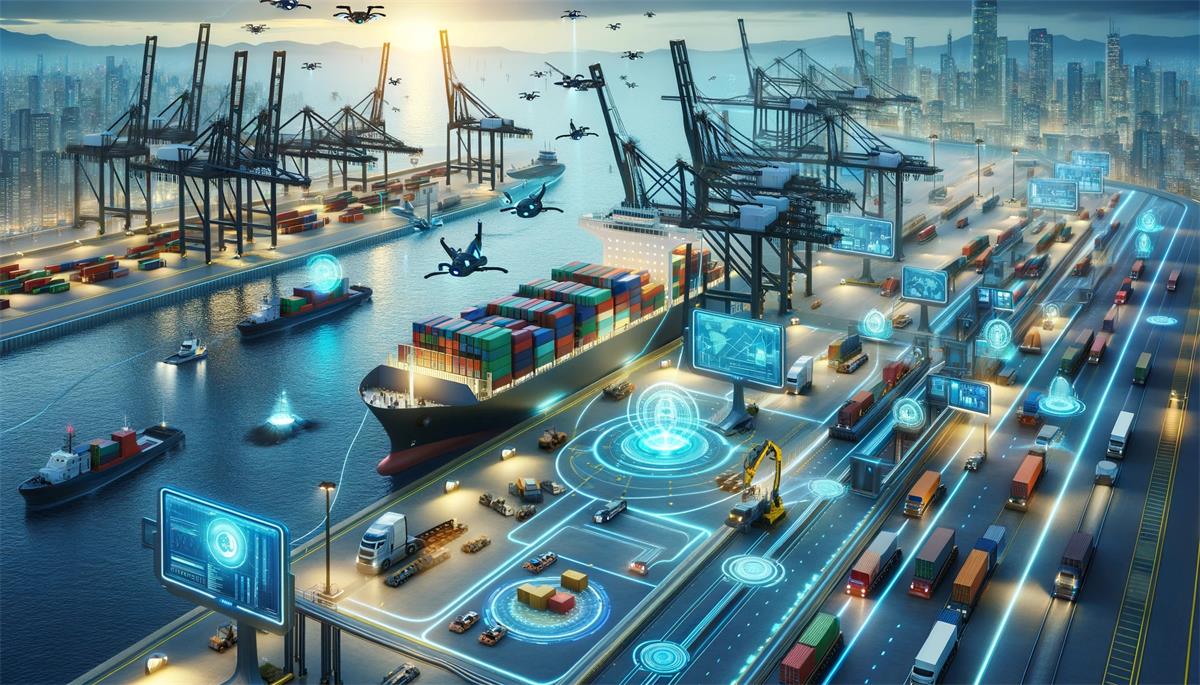
Integrating AI in Freight Forwarding
The Black More Group – The logistics industry continues to evolve rapidly, and AI in freight forwarding has become one of the most impactful innovations. Through advanced algorithms, AI in forwarding improves shipment speed and enables more accurate planning. Additionally, AI in forwarding enhances transparency by monitoring goods in real time. As competition intensifies, AI in forwarding offers cost-efficient automation for global trade. Moreover, AI in forwarding empowers logistics companies to analyze massive data for better decision-making. With rising customer expectations, AI in freight forwarding supports more reliable and flexible operations. Ultimately, AI in forwarding creates smoother collaboration across entire supply chain networks. Therefore, AI in forwarding is no longer optional but a strategic necessity.
To start, AI in forwarding improves scheduling accuracy and reduces delays at ports. Because disruptions remain common, AI in freight forwarding predicts weather conditions and congestion to suggest alternative shipping routes. As a result, AI in forwarding minimizes unnecessary costs caused by inefficiency. Along with automation tools, AI in freight forwarding reduces human errors in documentation. Furthermore, AI in forwarding dynamically allocates cargo space so equipment rarely returns empty. In addition, AI in forwarding supports faster booking confirmation across multiple regions. Thanks to better planning, AI in forwarding strengthens supply chain resilience to global market shocks. For these reasons, AI in forwarding transforms complex logistics into precise, data-driven performance.
International trade faces various risks, and AI in freight forwarding plays a key role in detecting suspicious activities. Therefore, AI in forwarding analyzes shipment patterns to identify abnormal behavior early. Alongside that capability, AI in forwarding verifies regulatory compliance automatically. Because cybersecurity protection matters, AI in forwarding secures sensitive business data against digital threats. Additionally, AI in forwarding improves cargo visibility and reduces theft incidents. On top of that, AI in forwarding helps automate customs clearance without delays. Although regulations continue to change, AI in forwarding keeps companies compliant effortlessly. Consequently, AI in forwarding increases trust and guarantees safer logistics operations.
Customer expectations increase every year, which is why AI in forwarding enhances communication significantly. In particular, AI in freight forwarding uses chat assistants to provide instant responses and reduce waiting times. Meanwhile, AI in forwarding enables live tracking through smartphones so customers stay informed. With smarter analytics, AI in forwarding predicts demand patterns and offers tailored solutions. Moreover, AI in forwarding streamlines booking requests by supporting automation. Because time zones often interrupt communication, AI in forwarding ensures 24-hour support across countries. As service quality improves, AI in freight forwarding increases loyalty and brand reputation. Through all these benefits, AI in freight forwarding introduces a modern, seamless shipping experience.
However, integrating AI in freight forwarding still presents several challenges for logistics companies. Due to high setup costs, AI in forwarding may feel out of reach for smaller operators. In addition, AI in freight forwarding relies heavily on clean and organized data that not all firms possess. Since job roles evolve, AI in forwarding sometimes creates resistance among employees. Even though systems can integrate well, AI in forwarding must work alongside older technologies. Without proper security safeguards, AI in forwarding could expose systems to cyberattacks. Therefore, AI in freight forwarding requires ongoing updates to remain effective. Besides all that, AI in forwarding demands strong leadership commitment for success. As industries transform, AI in freight forwarding challenges organizations to adapt quickly.
Looking ahead, AI in forwarding will guide companies toward smarter trade operations. As automation expands, AI in forwarding supports faster processes and better delivery accuracy. Due to rising market competition, AI in forwarding provides new ways to maintain profitability. Along with stronger data insights, AI in freight forwarding improves forecasting for inventory and demand. To remain relevant, AI in forwarding becomes the new performance standard in global freight. Even during uncertainty, AI in forwarding strengthens business resilience and reduces operating risks. Gradually, AI in freight forwarding will unify systems from warehouses to seaports into a single ecosystem. Without a doubt, AI in forwarding opens a smarter and more connected future for the logistics industry.
This website uses cookies.